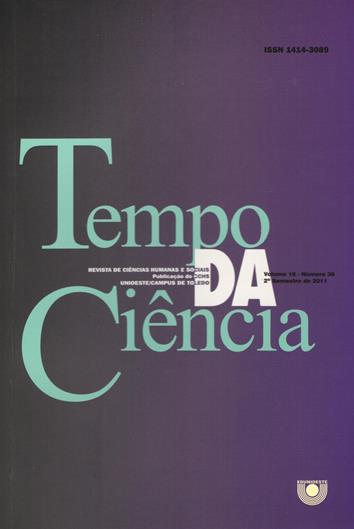IMMANUEL KANT: considerações sobre a teoria do homem como “cidadão de dois mundos”
DOI:
https://doi.org/10.48075/rtc.v18i36.9039Keywords:
Conhecimento Prático. Razão Prática. Liberdade Transcendental. Unidade da Razão.Abstract
This article has as main objective to present Kant’s conception of man as a“citizen of two worlds”, the apparent dualistic conception founded on the doctrine of TranscendentalIdealism of the Kantian subject. It is from the understanding of triduum’s reason(as theoretical reason, practical reason and speculative reason) that we can conceive how thedistinction made between “what we can know” and “what we can think” reflects or producesconsequences in relation to question about “what we can do.” Speaking of man as a citizen ofboth the sensible world as the intelligible world, Kant is incisive in pointing the way to beadopted this perspective. As options for a way to embrace it as dealing with two ontologicallyseparate worlds or just as two points of view adopted conceptually. During the study willdemonstrate clearly why the philosopher admits only the conceptual distinction and thereforepossible only since the realm of pure thought. As will be shown, this question appearsto be linked to the elucidation of the problem on the development of the Kantian concept offreedom.Downloads
Published
How to Cite
Issue
Section
License
Aviso de Direito Autoral Creative Commons
Política para Periódicos de Acesso Livre
Autores que publicam nesta revista concordam com os seguintes termos:
1. Autores mantém os direitos autorais e concedem à revista o direito de primeira publicação, com o trabalho simultaneamente licenciado sob a Licença Creative Commons Attribution que permite o compartilhamento do trabalho com reconhecimento da autoria e publicação inicial nesta revista.
2. Autores têm autorização para assumir contratos adicionais separadamente, para distribuição não-exclusiva da versão do trabalho publicada nesta revista (ex.: publicar em repositório institucional ou como capítulo de livro), com reconhecimento de autoria e publicação inicial nesta revista.
3. Autores têm permissão e são estimulados a publicar e distribuir seu trabalho online (ex.: em repositórios institucionais ou na sua página pessoal) a qualquer ponto antes ou durante o processo editorial, já que isso pode gerar alterações produtivas, bem como aumentar o impacto e a citação do trabalho publicado (Veja O Efeito do Acesso Livre).
Licença Creative Commons
Esta obra está licenciada com uma Licença Creative Commons Atribuição-NãoComercial-CompartilhaIgual 4.0 Internacional, o que permite compartilhar, copiar, distribuir, exibir, reproduzir, a totalidade ou partes desde que não tenha objetivo comercial e sejam citados os autores e a fonte.


